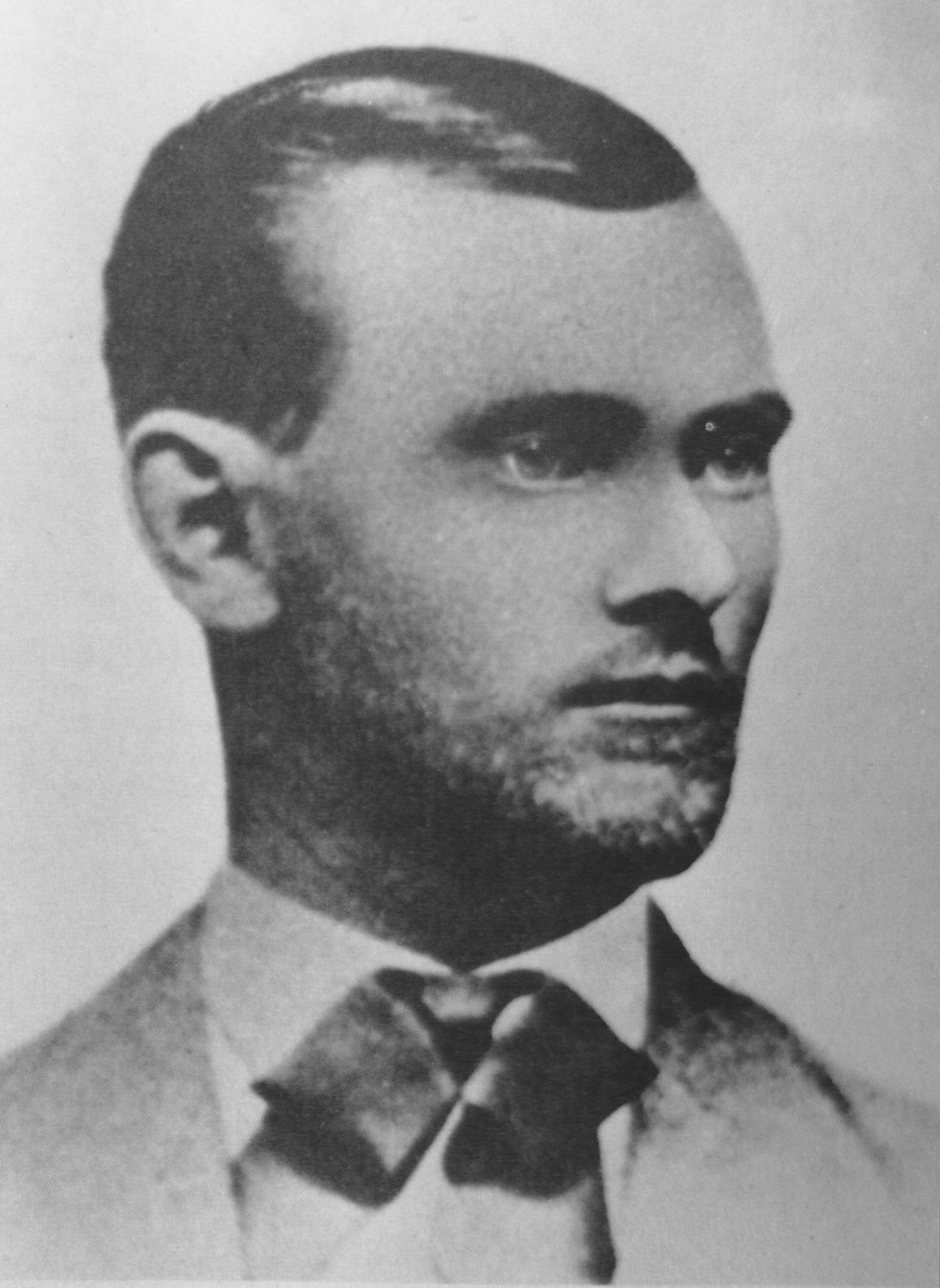The Life and Times of Jesse James (exerpt)
by Milton Perry
 The James Farm
The James Farm
The log cabin portion of the James home is over 160 years old. It was purchased in 1845 by the Rev. Robert Sallee James and his wife, Zerelda. Jesse James was born here on September 5, 1847, and was buried here April 6, 1882. The Victorian cottage that is the front portion of the house was built in 1893. The house has been a tourist attraction since 1882, and is visited by thousands of persons annually.
After the death of Zerelda Samuel in 1911, Frank James inherited the farm and lived here with his wife Anna and son, Robert. Frank died here in 1915, his widow in 1944. "Bob" James ran the Farm, and built a small golf course on it. After his death it came into the hands of the sons of Mary Barr, Jesse’s daughter. The Barrs sold it with all the original furnishings to Clay County in 1978 to be operated as an historic site.
The log cabin was restored in 1978-79 and the cottage portion in 1984.
The Farm is operated by the Division of Historic Sites of the Clay County Department of Parks, Recreation and Historic Sites.
Jesse Woodson James
Jesse James is one of the best known of all Americans. His name is recognized by more people throughout the world than that of any other historic American. He has become the "American Robin Hood" in song, literature and folklore. Nearly forty motion pictures, scores of plays and television programs, hundreds of books, and thousands of articles have appeared about him. There are more historic sites that have been preserved and opened to the public that relate to Jesse James than for any other American except George Washington and Abraham Lincoln, and of the thousands of people who visit his birthplace many come from other nations.
He was born here in the cabin on September 5, 1847. There was an older brother Alexander Franklin (Frank) and a sister, Susan. His parents were, for the raw frontier, upper middle class. The father, Reverend Robert S. James, was an eloquent Baptist minister, who had two college degrees and a sizable library. He founded or reorganized three churches near here, all of which are still active; and was member of the first Board of Trustees of William Jewell College, in nearby Liberty, Missouri.
Jesse’s mother, Zerelda Cole, was like her husband, a Kentuckian. She was a tall, demanding woman, who saw many tragedies during her long life (1823-1911). In 1850, when the children were very young, Rev. James "got the call" and went to California to preach to the miners during the Gold Rush. He died of a fever shortly after arriving there. The young widow subsequently married Dr. Reuben Samuel. It was a marriage that lasted for over fifty years and produced four children. Her home was ravaged during the Civil War and her husband hanged several times by Union soldiers to extract information concerning Frank, who had joined Confederate guerrillas. Though Dr. Samuel survived, he received permanent damage to his vocal chords and brain. She was arrested and jailed as a spy and she and the family were banished from Missouri.
Jesse was wounded three times during the war, the latter while surrendering, and suffered for more than three years.
Later, her sons became the nation’s most wanted outlaws and her home was visited a number of times by law enforcement groups. On the night of January 25, 1875, a bomb thrown into the house by detectives, exploded, killing her eight-year-old son, Archie Samuel, and mangling her right arm so badly that part of it was amputated. Jesse was murdered by Robert Ford in 1882; and Frank, who surrendered to the Governor of Missouri, was subsequently acquitted of crimes by juries in Missouri and Alabama. Susan died in childbirth a few years later and Dr. Samuel, whose mind slowly deteriorated, died in an insane asylum. Zerelda’s strong heart stopped beating on a train, when she was returning from a visit to Frank’s ranch in Oklahoma in 1911.
After Jesse was killed in 1882, Zerelda had him buried in her yard so she could watch over the grave. The home became a tourist attraction. It still is. She met visitors and would take them on a tour explaining the sweet, the sad, and the violent things that had happened to her and her family. Devoted to Jesse’s memory, she never admitted he had done anything wrong, but had been forced into his actions by people and circumstances. Whenever Frank was here, she would enlist him to help her.*
